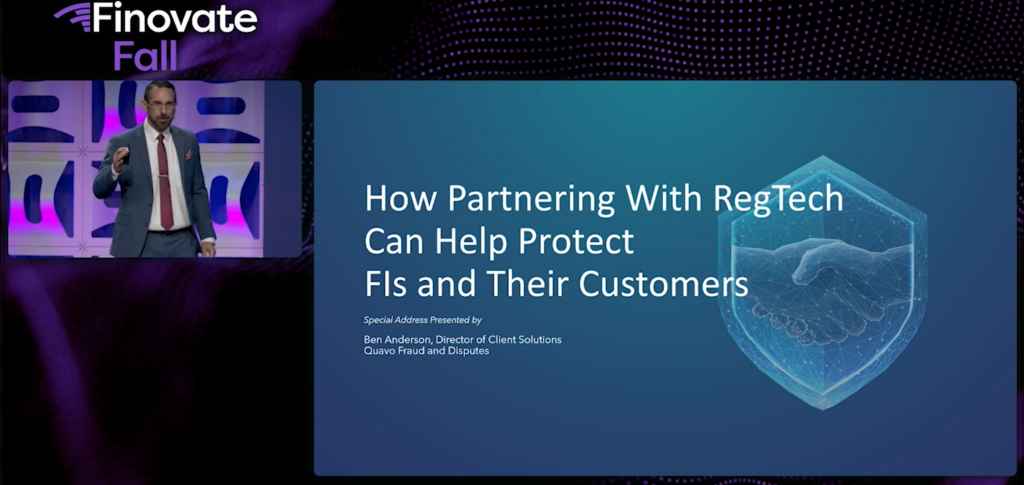
My advice to banks looking to build in-house dispute management systems this year? Stop trying to solve this on your own. This isn't your core business. Dispute management is our core business, our software will solve this for you.
Joe McLean, CEO & Co-Founder Tweet
Payments, Fraud Management, & Consumer Expectations
Quavo Fraud & Disputes co-founders Joe McLean and David Chmielewski met with Growth Marketing Manager Jennifer Marshall to discuss their outlook on financial fraud trends and consumer expectations in 2023, specifically the challenges facing financial institutions to deliver innovative, secure payment solutions regardless of regulatory requirements.
New Fraud, Old Payment Methods
Joe: What we have seen in the market is that check fraud has gone up significantly. Which is crazy, right? Because who’s using checks? Banks stopped paying as much attention to checks because they were dealing with cards and trying to get card fraud under control. I don’t want to say nobody was minding the store, but that’s what happened. Fraudsters figured it out. Kind like Catch Me if You Can. Right? We saw fraudsters pull off large scale check fraud. And it was significant last year.
Fraud is an ever-evolving game between banks and fraudsters seeing what they can tackle next. With regards to these new payment types, fraudsters are certainly looking at RTP and Zelle®, but they’re not ignoring traditional transactions, like ACH. We see a good amount of ACH fraud still out there.
David: On the product side, we want to ensure we are reducing account holder friction as much as possible. For ACH, the process is cumbersome for consumers. We dug deeper into that and poured over the laws, NACHA regs, etc. to develop solutions where issuers don’t need a signature. We’ve got to shorten the timeframes; we’ve got to make it easy for consumers to get through the process.
The recession will hit banks on two fronts, they will have to reduce their workforce at the same time they experience a significant rise in first party fraud. Quavo's software solves with data, knowledge, and automation.
David Chmielewski, CTO & Co-Founder Tweet
Regulation is Coming
New Fraud, Old Payment Methods
The End of a Payments Love Affair?
Jenn: Do you think the rush to innovate payments over the past, say, five years is partially responsible for the failure of so many fintechs recently? Even if indirectly?
Joe: For typical card transactions, you now have your phone or your watch. You can go anywhere, or you can go online, but within seconds you can exchange money for goods, with a level of consumer protection assured. How do you get better than that? What’s better than being able to buy anything in the world from anywhere in the world in like sub one second. At some point we may have to accept that payment technology is kind of as good as it gets.
David: Telepathy is the next thing, I guess.
Joe: Right. That’s where like I struggle with all these new transaction types. Outside of just sending money to another human (instantly). It’s just a pure money exchange. I struggle to see where this goes beyond here…Someone can Venmo me money and I can go spend it with a Venmo card and that is a useful tool. But for large scale retail, they’re still going to use the card on, say, Mastercard rails. Now if somebody could come along and make that process, that network process cheaper…
Maybe that’s the next evolution? I mean, the banks and merchants pay price for Visa and Mastercard, especially in the dispute world where banks and merchants are paying for chargebacks, and not an insignificant amount of money…Maybe somebody comes along as a less expensive alternative to Visa and Mastercard for these newer transaction types. Several have tried, all have failed…or been purchased.





